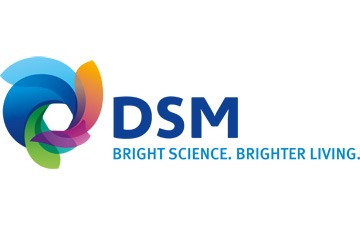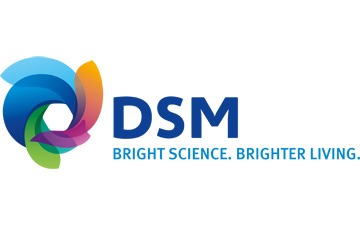Positioning DSM lacks X-factor, split inevitable?
 DSM, one of the Netherlands’ finest corporations, would do well to consider splitting its main business divisions, according to an extensive article in the financial newspaper on Tuesday, February 10, 2015. The cross-pollination, DSM itself calls this the ‘x-factor’, between the nutrition and materials divisions has so far proven ineffective. They either do not see enough results from it or simply do not understand it. These seemingly completely different activities are, according to several analysts, more successful as independent business units, which could even translate into a higher stock price target. We believe that a stronger positioning of the entire organization could have prevented this commotion. And since we specialize in positioning B2B companies, we would like to take you along in the positioning of DSM.
DSM, one of the Netherlands’ finest corporations, would do well to consider splitting its main business divisions, according to an extensive article in the financial newspaper on Tuesday, February 10, 2015. The cross-pollination, DSM itself calls this the ‘x-factor’, between the nutrition and materials divisions has so far proven ineffective. They either do not see enough results from it or simply do not understand it. These seemingly completely different activities are, according to several analysts, more successful as independent business units, which could even translate into a higher stock price target. We believe that a stronger positioning of the entire organization could have prevented this commotion. And since we specialize in positioning B2B companies, we would like to take you along in the positioning of DSM.
DSM is currently fully focused on ‘sustainability’. They do this with the slogan ‘Bright Science, Brighter Living’. According to Global Brand Director Jos van Haastrecht, this (recent) focus on sustainability is not greenwashing but employees truly believe that DSM can make a difference in sustainability. DSM sees this contribution to society mainly coming from what is called the x-factor: the innovations made possible by the cross-pollination of the nutrition and performance materials divisions. Then the circle is complete, you might say. But if you randomly asked people which brands they associate with sustainability, we do not think DSM would be mentioned in the top 10. Successful positioning in the field of sustainability can be named, however, think for example of Dutch brands like Unilever or Triodos.
The website where van Haastrecht’s statement was posted has unfortunately been removed, but we leave the processing here for context.
New Brand Promise DSM
“We want to use science smartly to improve people’s quality of life now and in the future.”
How sustainable is DSM’s new positioning?
We seriously question the chosen positioning which – if we read between the lines in van Haastrecht’s story – seems to be implemented top-down. How much affinity does the engineer or polymer specialist who has worked at DSM for 20 years have with this positioning? Is this positioning actually implementable at all levels? A positioning should feel like a ‘warm blanket’ and not only be applicable at headquarters but also at every brand, product, and technology level. Sometimes we think that when a unique positioning is lacking, there is too quick a resort to building it around sustainability.
Positioning DSM: The value of ‘truly’ sustainable
Is it not too obvious that chemical corporations like DSM have everything well in order in this area, that they use their technological knowledge to make the world a bit more livable for everyone? Isn’t that their core business, from which they can also earn significantly by selling that livability? If something is too obvious, as experts in positioning, we actually find it not very distinctive. An IT service provider, electronics corporation, or even the tax authorities could also position themselves on making the world more livable. Oh, wait, don’t they already? Is there a brand that cannot claim the same positioning?
Positioning DSM: Distinctive?
For context, we quickly looked at a few of the largest chemical corporations, what do they say?
BASF: “through science and innovation we enable our customers in nearly every industry to meet the current and future needs of society”
DOW Chemical: “Dow’s team of scientists and experts are addressing the world’s most pressing challenges – enhancing the quality of life for current and future generations”
Sinopec: “What you’re doing for a greener life, is what we’ve been doing for you.”
LyondellBasell: “Our products play a vital role in improving the quality of people’s lives.
We don’t need to run complex analyses to discover a central theme here, do we?
In short, we can’t make it more fun for DSM, but easier. Our advice to silence all proponents of a split: go look for what truly makes DSM unique and tell that story. Not top-down but bottom-up. DSM actually hasn’t captured that much-discussed X-factor yet. If they don’t find it, we indeed see a split as inevitable.
Want to know more about positioning and how you can get started yourself? Read our page positioning and find there, besides in-depth articles, also dozens of examples and models for every possible positioning challenge.
